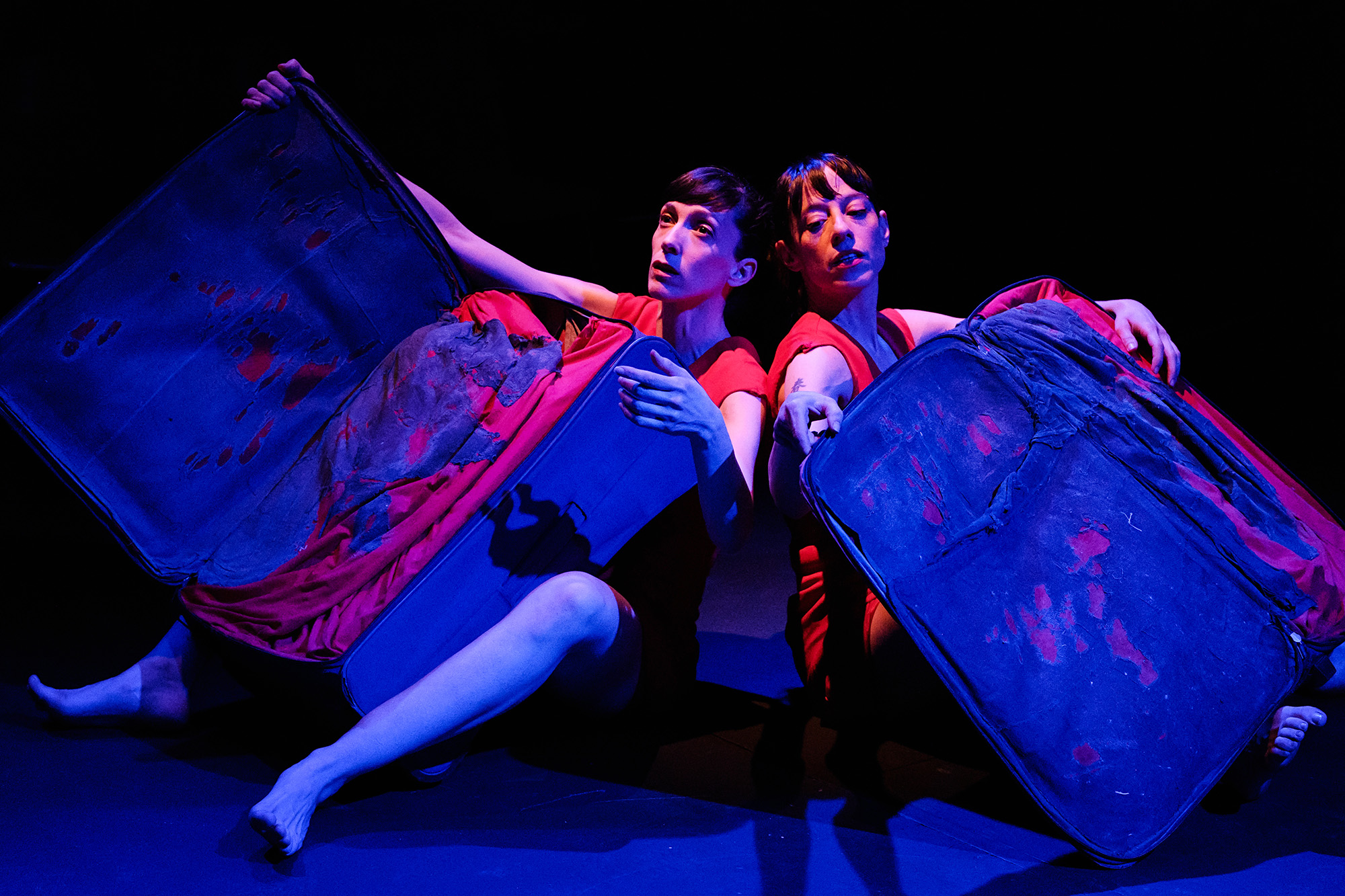A woman in a skirt-suit and glossy dark hair hurries through a corridor, trailing a suitcase. Another one, identically dressed, mirror image or fellow flight attendant, crosses opposite, also with suitcase. They traverse the back strip of a bare stage, exposed by opened black curtains. A third woman (or is it the first?) comes from left to right and disappears, while a fourth (oh, wait, it’s the second!) crosses right to left. As they pass each other again and again, the scene flickers between the abstraction of a terminal with a stream of travellers, interchangeable as molecules, or two clowns in business drag shuttling back and forth like fish, an affront to the notion of arrival.
I’m at the Tara Theatre in Earlsfield, south-west London, to see Pupik, after navigating several trains to get here – not because it’s far, but because that’s what life seems to ask for these days. It’s the first minute of the show and already I belong to it, as if it’s telling my story – I live in that corridor! I am one of these clowns! From here on in, this show’s defining elements are established: a tacking back and forth between the individual and universal; a meditation on travel and transit; an invitation to the audience to connect.
Pupik, (the title is the Hebrew word for navel) is part collage of origin stories, and part travelogue, with a smattering of postcards thrown in: a two-woman physical and visual theatre show by Yael Karavan (Karavan Ensemble, UK/Israel) and Naomi Silman (Lume Teatro, Brazil), who draw on their complex personal histories and heritage to take us through a succession of stylised, joyous, and at times dark, scenes and images as they stitch together stories, exchange dances and memories, rant in several languages, and tour real and imaginary space-times, all the while nipping and tugging at the audience. Their hilarious, at times virtuosic, performances as squabbling sisters, comedic moustachio’d despots, and (oddly convincing) prehistoric lizards move from mood to mood with relentless verve, with the suitcases – always in sight –shapeshifting as well, as they become music boxes, repositories, body parts and lounge chairs.
The show itself, like its performers, is a migrant entity, having traced a path through Brazil and Israel, performed in Portuguese and Hebrew (with a smattering of French and Italian), and now freshly adapted into English for its UK audience. One gets the sense of this adaptation as not a straightforward translation from one language to another – in fact, it contains almost too many languages to count– but a bricolage turned just enough in our direction to acknowledge us; to make us go back cheered to the trains.
Featured image (top): Pupik photo by James Bellorini

